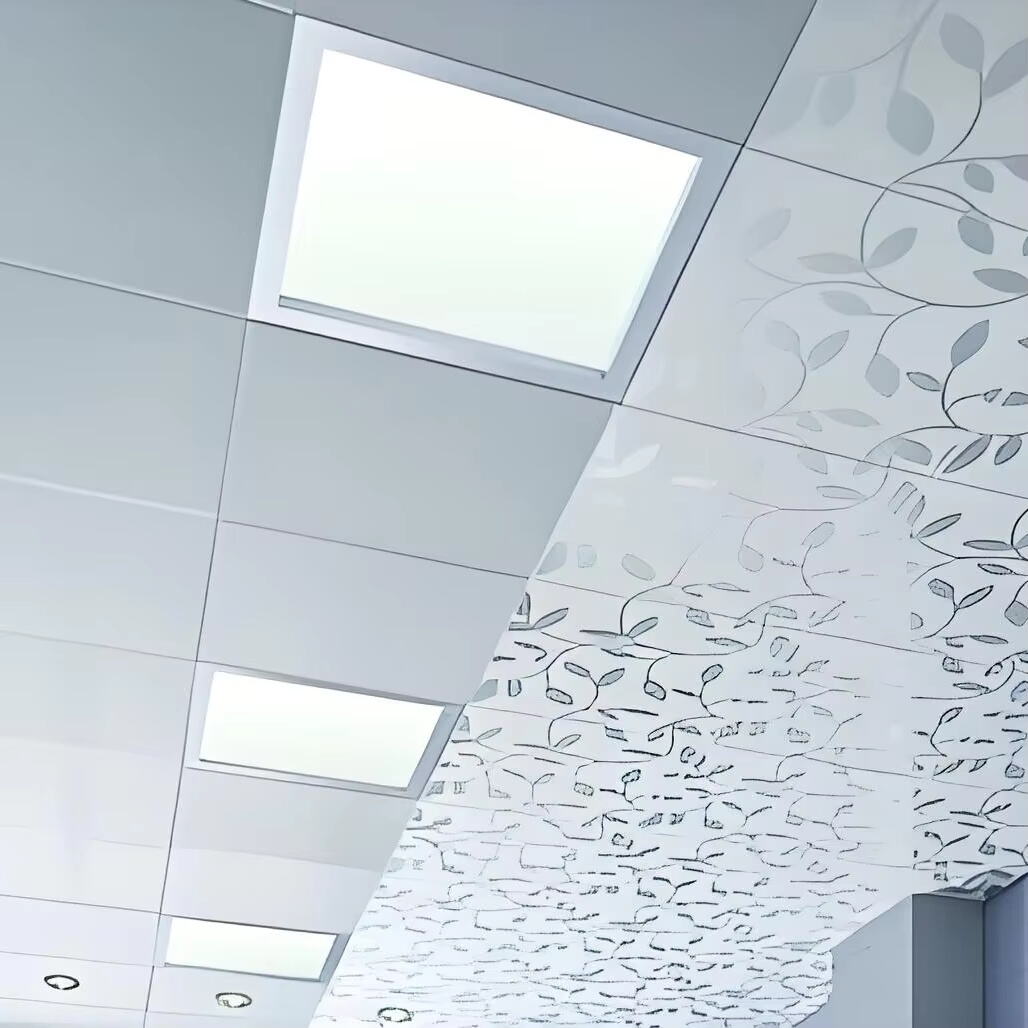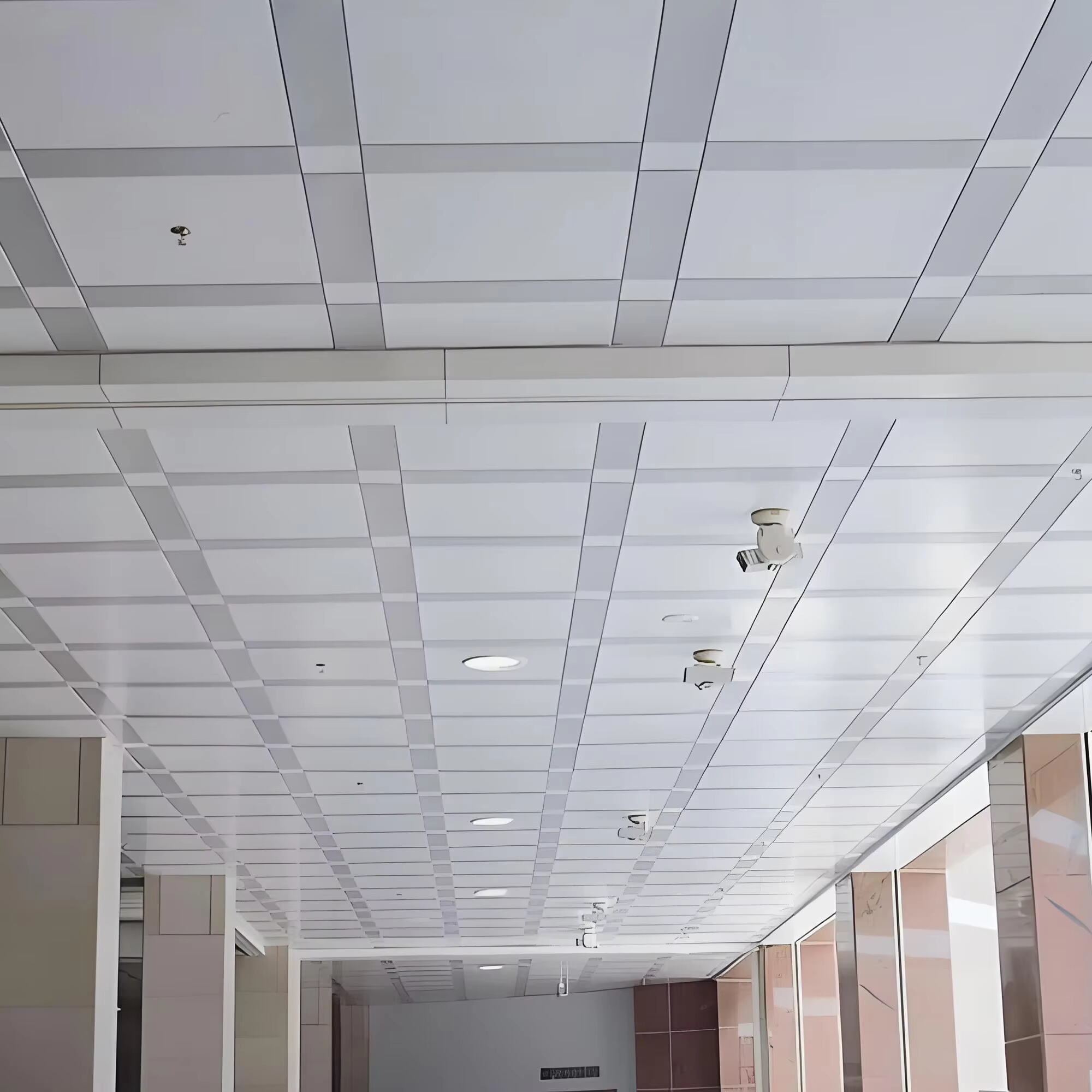The Rising Popularity of Aluminum Roof Panels
Aluminum roof panels are becoming increasingly popular across homes and businesses because they offer some serious advantages. For starters, these roofs last way longer than most alternatives. We're talking about 50+ years of service with hardly any upkeep needed compared to asphalt shingles that need replacing every decade or so. Another big plus is how well they hold up against tough weather. Storms with heavy winds just bounce off them, and extreme heat doesn't seem to affect their performance either. This kind of resilience makes sense why more builders are specifying aluminum when putting together new construction projects lately.
The numbers tell an interesting story about aluminum roofing taking off across the country. According to industry data, there's been something like a four times increase in metal roofs being installed since around 2013. People seem drawn to them because they save money in the long run while also lasting longer than traditional options. Most experts think this trend isn't slowing down anytime soon either. Homeowners who switch to these kinds of roofs often find themselves spending less on fixes and replacements down the road, which makes all the sense in the world when looking at maintenance costs over many years.
Aluminum roof panels bring more than just cost savings to the table when it comes to green building practices. These materials can be recycled over and over again, which helps cut down on what ends up in landfills across the country. What's interesting is how they actually work against heat buildup thanks to their reflective surfaces. This means buildings stay cooler naturally in summer months without needing as much air conditioning. When we look at all these points together, aluminum roofing stands out not only for being good for the planet but also making sense from a wallet perspective too. Homeowners and businesses alike get the best of both worlds with this option.
Built-In Corrosion Resistance for Harsh Climates
Natural Oxidation Process
One thing that makes aluminum so great for roofs in tough climates is how it naturally fights off corrosion. When aluminum sits outside, it goes through something called oxidation. This creates a really thin but tough layer of oxide on the surface that protects the metal from corroding. We've seen this work wonders across different weather conditions over time. Take places near the coast or in heavy industry zones where there's lots of salt air or chemical exposure. The oxide layer keeps working even when things get rough, which means aluminum roofs last much longer than most alternatives. And unlike those iron based metals that turn to rust eventually, aluminum just keeps going without needing constant repairs or replacements. That alone saves building owners tons of money in maintenance costs down the road.
Saltwater and Industrial Area Performance
Aluminum roof panels really stand out in saltwater environments compared to most other roofing materials available today. Sea salt spray tends to eat away at things like steel pretty quickly, but doesn't bother aluminum much at all. That makes these panels especially good for homes and buildings near the coast. Tests show aluminum corrodes way slower than alternatives, so they last longer on roofs before needing replacement. Industry professionals point out that aluminum works great in factories and warehouses too, where there's constant exposure to harsh conditions. For businesses wanting their structures to stay intact without regular repairs, this matters a lot. Over time, aluminum becomes the go-to option in tough spots because it just keeps going despite whatever nature throws at it. The savings from fewer replacements plus better protection make it worth considering even though initial costs might be higher upfront.

Lightweight Yet Strong: Structural Advantages
High Strength-to-Weight Ratio
Aluminum stands out as a great option for roofing mainly because of its impressive strength compared to how light it actually is. This makes all the difference when building structures since it saves money and makes installations much easier to handle. Take big construction jobs for instance. When builders use aluminum that's not too heavy, they don't need as much extra support framework, which cuts down on expenses significantly. That's why places like airports and sports stadiums tend to go with aluminum roofs so often. The material lets architects create really wide open spaces without worrying about putting too much strain on anything else. Plus, lighter roofs mean less pressure on everything else in the building design. All these factors combine to give buildings a better balance across their entire structure. No wonder aluminum keeps becoming the go to material for contemporary buildings where looking good matters just as much as standing strong.
Reduced Framing Requirements
Aluminum roofing panels offer something really valuable when it comes to construction work: they cut down on what needs to be built underneath them. Since aluminum doesn't weigh much at all, there's just not as much need for heavy duty supports throughout the structure. What does this mean practically? Less material gets used up during construction, and workers can get the job done faster too, which obviously cuts down on labor expenses. We saw this happen recently with a warehouse project where switching to aluminum meant cutting back nearly half of their original framing plans, saving thousands in both materials and man hours. Another plus point worth mentioning is how lighter roofs put less strain on building foundations over time. This means fewer cracks forming and less money spent fixing problems later on. For anyone looking to build something smartly while keeping costs under control, going with aluminum makes sense from day one.
Weatherproof Performance in Extreme Conditions
UV Radiation Reflection
Aluminum roof panels are really good at bouncing back UV rays, which helps them last much longer than other materials. The way they reflect light does two main things: it keeps the roof itself from wearing out so fast, and it actually makes buildings more efficient when it comes to energy use. Studies show that these panels can reflect around 95 percent of the sun's radiation, so they don't get as hot as traditional roofing options. When buildings stay cooler naturally, air conditioning systems don't have to work as hard all day long. Homeowners notice this difference in their monthly bills, especially during those brutal summer months. Businesses located in areas where the sun beats down constantly find aluminum roofs particularly appealing because of these cost benefits over time.
Thermal Expansion Management
When installing aluminum materials, we need to think about how they expand and contract with heat because this can cause all sorts of problems if ignored. The metal gets bigger when warm and smaller when cold, so getting the installation right from the start is really important for avoiding headaches later on. Good practice means leaving some extra room between components where expansion might happen, plus putting in those flexible sealants that won't crack under stress. Many seasoned installers suggest separating different panel sections and using fasteners that let things move around a bit without breaking loose. This flexibility makes sure aluminum roofing lasts much longer in places where temperatures swing wildly throughout the day or season, which ultimately means better value for money spent on these installations.
Wind Resistance Up to 140 MPH
Aluminum roof panels really stand up well against strong winds, as tests have shown they perform great even when things get pretty rough outside. According to building codes, these metal roofs handle winds going all the way up to 140 miles per hour. That makes them a smart choice for places where storms blow through regularly or areas hit by hurricanes from time to time. The reason these roofs last so long is because aluminum itself is quite tough, plus manufacturers keep coming up with better designs for how the panels fit together. Many construction professionals recommend installing aluminum roofs in these kinds of locations since they tend to need less fixing over time compared to other materials. Homeowners won't spend as much money on repairs after big storms because the metal just doesn't give way like some alternatives do when faced with those powerful gusts.
Minimal Maintenance Requirements
No Surface Treatments Needed
Aluminum roofs really cut down on maintenance work thanks to what they're made of. They just don't rust like other materials do, so there's no need for those constant surface treatments most homeowners deal with. Over time, this makes aluminum a smart choice financially speaking. Industry numbers back this up showing property owners typically spend way less keeping their aluminum roofs in good shape versus older roofing options. The material itself holds up against pretty much anything Mother Nature throws at it without breaking down. When looking at actual money saved, homeowners find themselves putting away cash instead of spending it on fixes and treatments year after year throughout the roof's lifetime.
Cleaning Best Practices
Maintaining the aesthetic and functional quality of aluminum roofs involves some basic cleaning practices. Routine cleaning is simple and can be done using water and a mild detergent, ensuring that any dirt, debris, or pollutants are removed from the surface. Here is a quick checklist for cleaning aluminum roofs:
- Remove any loose debris, such as leaves and branches.
- Use a garden hose to rinse off dust and dirt.
- Apply a mild detergent solution to stubborn stains.
- Rinse thoroughly to ensure no detergent residue remains.
- Inspect for signs of damage or wear.
People who want professional help can turn to expert cleaning services for thorough cleanings and inspections that keep roofs in good shape. Getting advice from pros makes sense especially when there are stubborn stains or after weather changes that probably damaged the roof somehow. Regular maintenance helps aluminum roofs stay strong and functional for much longer than they would otherwise. Most homeowners find that spending a bit more upfront saves them money down the road while keeping their property looking great year after year.
FAQ
Q: How long do aluminum roof panels typically last?
A: Aluminum roof panels often last over 50 years with minimal maintenance.
Q: Are aluminum roof panels environmentally friendly?
A: Yes, they are highly recyclable and support sustainability by reducing landfill waste. They also enhance energy efficiency by reflecting solar radiation.
Q: Can aluminum roofing withstand harsh weather conditions?
A: Yes, aluminum roofing is resistant to corrosion, UV radiation, and wind speeds up to 140 MPH, making it ideal for harsh climates.
Q: What are the maintenance requirements for aluminum roofing?
A: Aluminum roofing requires minimal maintenance, with no need for surface treatments. Routine cleaning with water and mild detergent is recommended.
Q: Is aluminum roofing suitable for coastal areas?
A: Yes, aluminum's natural oxide layer protects against saltwater corrosion, making it an excellent choice for coastal environments.


